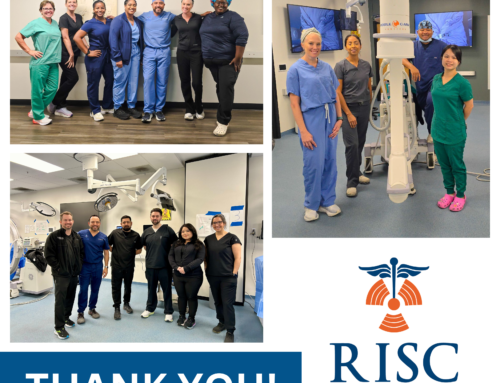The Vital Role of Radiology Technologists
Radiology technologists play a pivotal role in modern healthcare, serving as frontline providers of diagnostic imaging services that are critical for accurate diagnosis and treatment planning. As highly skilled professionals, radiology technologists operate advanced imaging equipment, collaborate with radiologists and other healthcare professionals, and prioritize patient safety and comfort. In this blog, we’ll delve into the essential role of radiology technologists in patient care, highlighting their responsibilities, skills, and contributions to the healthcare team.
Radiology technologists are responsible for performing a wide range of diagnostic imaging procedures, including X-rays, CT scans, MRI scans, ultrasound, and nuclear medicine studies.
Their primary duties include:
- Patient Preparation: Radiology technologists prepare patients for imaging procedures by explaining the process, obtaining relevant medical history, and ensuring patient comfort and safety throughout the procedure.
- Equipment Operation: Radiology technologists operate and maintain sophisticated imaging equipment, ensuring accurate and high-quality images while adhering to safety protocols and regulatory guidelines.
- Image Acquisition: Radiology technologists acquire diagnostic images using various imaging modalities, adjusting equipment settings and positioning patients to obtain optimal images for interpretation by radiologists.
- Quality Assurance: Radiology technologists are responsible for performing quality assurance checks on imaging equipment, ensuring that images meet diagnostic standards and are free from artifacts or technical errors.
- Patient Care: Radiology technologists provide compassionate care to patients during imaging procedures, addressing any concerns or discomfort and monitoring patients for adverse reactions or complications.
- Documentation and Record-Keeping: Radiology technologists maintain accurate records of imaging procedures, patient information, and equipment maintenance, ensuring compliance with regulatory requirements and facilitating continuity of care.
To excel in their role, radiology technologists require a diverse skill set and a strong foundation in radiologic technology. Key skills and qualifications include:
- Technical Proficiency: Radiology technologists must possess a thorough understanding of imaging equipment and techniques, as well as proficiency in positioning patients and acquiring high-quality images.
- Communication Skills: Effective communication skills are essential for radiology technologists to interact with patients, healthcare providers, and other members of the healthcare team, ensuring clear and accurate information exchange.
- Critical Thinking and Problem-Solving: Radiology technologists must demonstrate critical thinking skills to troubleshoot technical issues, adapt to challenging patient scenarios, and make quick decisions in emergency situations.
- Attention to Detail: Attention to detail is crucial for radiology technologists to ensure the accuracy and quality of diagnostic images, as well as to identify any abnormalities or artifacts that may affect interpretation.
- Compassion and Empathy: Radiology technologists must demonstrate empathy and compassion towards patients, particularly those who may be anxious or in pain, to provide supportive care and alleviate distress during imaging procedures.
Radiology technologists play a vital role in patient care by:
- Facilitating Diagnosis and Treatment: Diagnostic imaging is instrumental in diagnosing a wide range of medical conditions, from fractures and tumors to internal organ abnormalities. Radiology technologists play a key role in acquiring high-quality images that enable accurate diagnosis and treatment planning by radiologists and other healthcare providers.
- Ensuring Patient Safety: Radiology technologists prioritize patient safety throughout the imaging process, implementing radiation safety protocols, and monitoring patients for adverse reactions or complications. Their expertise in equipment operation and patient positioning minimizes the risk of errors and ensures the safe and effective delivery of imaging services.
- Providing Supportive Care: Radiology technologists provide compassionate care to patients during imaging procedures, addressing their concerns, and ensuring their comfort and well-being. Their reassuring presence and empathetic approach help alleviate anxiety and enhance the patient experience.
- Collaborating with Healthcare Providers: Radiology technologists collaborate closely with radiologists, physicians, and other healthcare providers to interpret imaging findings, correlate clinical information, and formulate appropriate treatment plans. Their expertise and insights contribute valuable information to the multidisciplinary healthcare team, facilitating coordinated patient care.
Radiology technologists play a critical role in patient care, providing essential diagnostic imaging services that are integral to accurate diagnosis, treatment planning, and patient management. With their technical expertise, compassionate care, and commitment to safety, radiology technologists contribute significantly to the delivery of high-quality healthcare services and the overall well-being of patients. As frontline providers in the field of radiology, radiology technologists deserve recognition and appreciation for their invaluable contributions to patient care and the healthcare profession.






